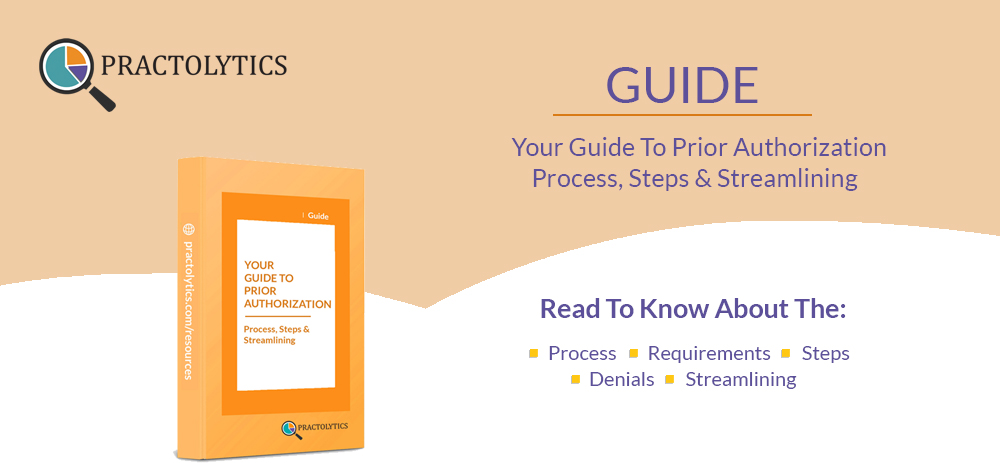Navigating Healthcare Systems: Patient Rights and Appeal Strategies Against Authorization Denials
The complexities of healthcare and insurance systems can overwhelm patients, particularly when dealing with prior authorization denials. Prior authorization, a prerequisite by insurance firms for treatment approval, often leads to denials. Despite the frustration, patients possess legal avenues for appeal. This guide is crafted to equip patients with knowledge of their rights and tactics to maneuver through appeals discreetly and effectively.
Table of Contents
Understanding Prior Authorization
Evaluating the necessity of prescribed products or services is a measure implemented by insurance companies to determine coverage under a patient’s policy. This process is applied to a variety of medical services, such as prescription drugs and surgeries.
Why Do Insurers Require Prior Authorization?
Insurers enforce prior approval to verify the medical necessity of treatments, promote cost-effective options, avoid unnecessary services, and manage healthcare expenses.
Common Prior Authorization Denial Causes
Numerous factors could result in the refusal of a prior authorization plea, including:
- Insufficient medical necessity.
- Inaccurate or incomplete paperwork.
- Selection of non-preferred medications or therapies.
- Consideration of treatment as experimental or investigational.
- Policy-based rejections.
Legal Rights of Patients
Individuals possess particular entitlements concerning rejections of prior authorization, guaranteeing just treatment and availability of vital healthcare services.
The Right to Information
Individuals possess entitlements to acquire details concerning:
- The grounds for refusal.
- The guidelines employed by the insurance entity for disapproval of authorization.
- The method for challenging decisions and its initiation.
The Right to Appeal
Individuals possess the entitlement to contest a refusal by utilizing an appeals procedure, which is fortified by both federal and state statutes. This grants individuals the ability to petition for a reassessment of the insurance provider’s determination.
The Right to Timely Decisions
Insurance entities are obliged to adhere to predefined schedules for processing prior authorization petitions and appeals. These schedules guarantee swift verdicts for patients, facilitating access to vital medical assistance without prolonging the process unnecessarily.
The Appeals Process
The process for challenging authorization refusals empowers patients to contest them. Familiarizing oneself with the steps can aid in navigating the system more effectively.
Step 1: Review the Denial Notice
When receiving a refusal, scrutinize the document closely to grasp the specific reasons. The document should contain: The rationale for refusal. The insurer’s criteria. Instructions for challenging it.
Step 2: Acquire Supporting Materials
For enhancing your appeal, secure essential medical documentation, like:
- Notes and suggestions from healthcare professionals.
- Findings from tests.
- Prescription histories.
- Any additional paperwork validating the need for the requested medical service.
Step 3: Internal Appeal Submission
For the first level of appeals, request a review of the insurance company’s decision. Here’s how:
- Draft a Letter: Explain why the service is needed, with supporting documents.
- Appeal Submission: Follow the instructions in the denial notice within the specified timeframe.
- Record Keeping: Document all interactions with the insurer, including dates, representatives, and content.
Step 4: External Review
Should the inner challenge get a negative response, patients retain the prerogative to seek an external review. This assessment is administered by an unaffiliated third party and delivers an unbiased evaluation of the refusal.
- Initiate an External Assessment: Adhere to the guidelines stipulated by your insurer to kickstart an external review. Typically, this plea must be lodged within 4 months subsequent to receiving the conclusive denial from the inner challenge.
- Furnish Supplementary Records: Dispatch any extra documentation that could bolster your argument. The external assessor will weigh all evidence tendered during the inner challenge alongside any fresh data presented.
- Anticipate the Verdict: The external review procedure commonly spans 45 days, although swift assessments are accessible for pressing matters and usually conclude within 72 hours.
- Fast-Track Appeals: When a patient’s well-being or life faces an immediate threat, a quick appeal process is available. This ensures a speedy review, generally completed within three days. To initiate a fast-track appeal, provide proof of the urgency, like a statement from a doctor.
Tips for a Favorable Appeal
Challenging a refusal for prior permission may prove arduous, but adhering to these guidelines could enhance your likelihood of acceptance:
- Maintain meticulous documentation of all engagements with your insurer, noting specific dates, durations, identities, and resolutions.
- Grasp the nuances of your insurance policy to discern the extent of coverage and the stipulations for eligibility.
- Articulate in clear terms the medical necessity of the service in question and its contribution to your well-being.
- Furnish extensive medical records, endorsements from medical professionals, and any corroborating evidence bolstering your argument.
- Ponder seeking guidance from a patient advocate, healthcare provider, or legal expert specializing in healthcare legislation.
Legal Protections for Patients
Various federal and state regulations uphold patients’ entitlements and ensure just treatment throughout the appeals procedure.
The Affordable Care Act (ACA)
The ACA furnishes several defenses for patients, including:
- The liberty to dispute decisions made by insurance entities.
- Entry to an autonomous external review.
- Timely handling of claims and appeals.
The Employee Retirement Income Security Act (ERISA)
For patients encompassed by employer-sponsored health schemes, ERISA offers safeguards such as:
- The freedom to challenge a refusal of benefits.
- Stipulations for insurers to furnish lucid explanations for refusals.
- Entry to a fair and swift appeals process.
State Laws
Numerous states possess supplementary laws and ordinances guarding patients’ entitlements. These statutes might involve:
- Prolonged timeframes for appeals.
- Specific protocols for addressing prior authorization refusals.
- Safeguards against unjust insurance practices.
Common Issues and Ways to Address Them
Patients often encounter obstacles when contesting prior authorization refusals. Understanding these issues and potential remedies can facilitate a smoother process.
|
Issues |
Solutions |
|
Incomplete or Incorrect Documentation |
Ensure all paperwork is thorough and accurate. Review for any missing details and confirm that all documents are clear and appropriately labeled. |
|
Lack of Understanding of Medical Necessity Criteria |
Educate yourself on the insurer’s medical necessity criteria. Collaborate with your healthcare provider to ensure your appeal addresses these criteria effectively. |
|
Delays in the Appeals Process |
Keep track of all deadlines and regularly follow up with the insurer. Request an expedited review if your health condition requires urgent attention. |
|
Denials Based on Policy Exclusions |
Thoroughly review your insurance policy to grasp any exclusions. If you disagree with the denial, present evidence and argue why the service should be covered. |
Looking for help with appeals? Consider these options:
- Patient Allies: Experts in healthcare navigation, they help decode insurance, gather paperwork, draft appeals, and liaise with insurers.
- Medical Guides: Your healthcare provider can assist by furnishing records, drafting necessity letters, and justifying needed services.
- Legal Counsel: For intricate cases, consult attorneys versed in healthcare law for rights, appeals, and representation.
Case Studies
Studying real-life instances can provide valuable insights into navigating the appeals process and achieving favorable outcomes.
Case Study 1: Prescription Medication Rejection
Scenario: A patient, dealing with a long-standing ailment, encountered a refusal of prior approval for an essential prescription drug recommended by their doctor.
Steps: The patient gathered medical files, coupled with an exhaustive letter from their physician, and scientific research backing the drug’s effectiveness.
Result: Despite the internal appeal’s dismissal, the patient sought an external evaluation. The external reviewer reversed the decision, leading to the drug’s approval.
Case Study 2: Surgical Procedure Decline
Scenario: A patient needed a crucial surgical procedure, denied by the insurer citing it as experimental.
Steps: The patient’s healthcare provider provided extensive documentation, including medical records, peer-reviewed studies, and expert opinions validating the procedure’s efficacy.
Result: While the internal appeal initially failed, an external review was pursued. The external evaluator identified ample evidence of the procedure’s necessity, resulting in the denial being overturned.
Case Study 3: Diagnostic Testing Denial
Scenario: A patient confronted refusal of prior authorization for a diagnostic test crucial for diagnosing a complex medical condition.
Steps: The patient and their healthcare provider submitted a comprehensive appeal, supported by documentation like prior test results and a physician’s statement.
Result: The internal appeal succeeded, leading to the approval of the diagnostic test, enabling a timely and accurate diagnosis.
In short, managing issues related to prior authorization refusals can present difficulties, yet comprehending your legal entitlements and the appeals protocol can facilitate more efficient navigation. Through structured, informed, and proactive approaches, individuals can effectively contest refusals and secure essential medical attention. Essential points entail acquainting yourself with legal rights, compiling requisite documentation, adhering to the appeals protocol meticulously, and soliciting assistance if necessary.
At Practolytics, we comprehend the difficulties individuals encounter when facing rejection in prior authorizations. This is why we stress the significance of being aware of your lawful entitlements and safeguards under both federal and state statutes. Through being knowledgeable and methodical, individuals can compile essential paperwork and grasp the requisites for medical necessity, laying the groundwork for a triumphant challenge.
ALSO READ – What Makes Outsourcing the Best Method for Prior Authorizations?
Talk to Medical Billing Expert Today — Get a Free Demo Now!






